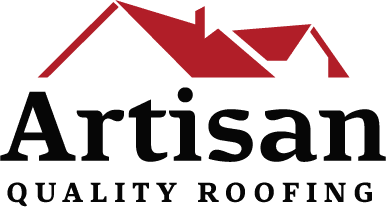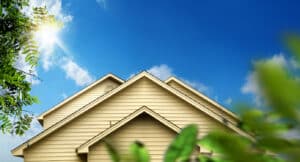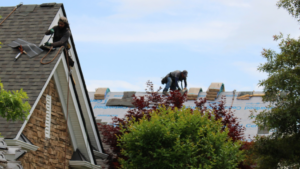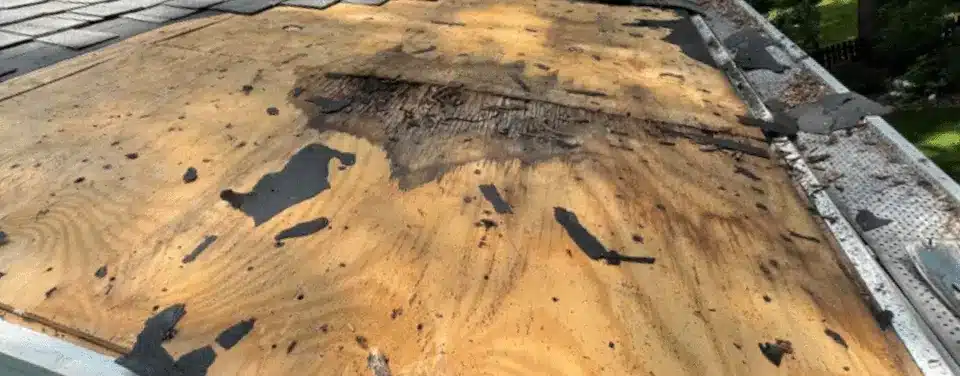
Choosing the right roofing material is a crucial decision for any homeowner or business owner, as it not only affects the aesthetics of your property but also plays a vital role in protecting your investment from the elements. To help local homeowners make the very best decision for their roof replacements and roof repairs, the roofing specialists from Artisan Quality Roofing are taking on the age-old debate of OSB vs. plywood to determine the best materials for your home.
Understanding OSB and Plywood for Roof Sheathing
Both OSB and plywood are commonly used as roof sheathing in roof deck applications. Roof sheathing is the layer of material installed directly onto the roof trusses or rafters, providing a solid and stable base for the roofing materials that are placed on top of it.
Sheathing, also known as roof decking, plays a crucial role in distributing the weight of the roof’s structure and the roofing materials evenly, as well as providing additional structural support and helping to create a weather-resistant barrier.
Oriented Strand Board (OSB) for Roofing
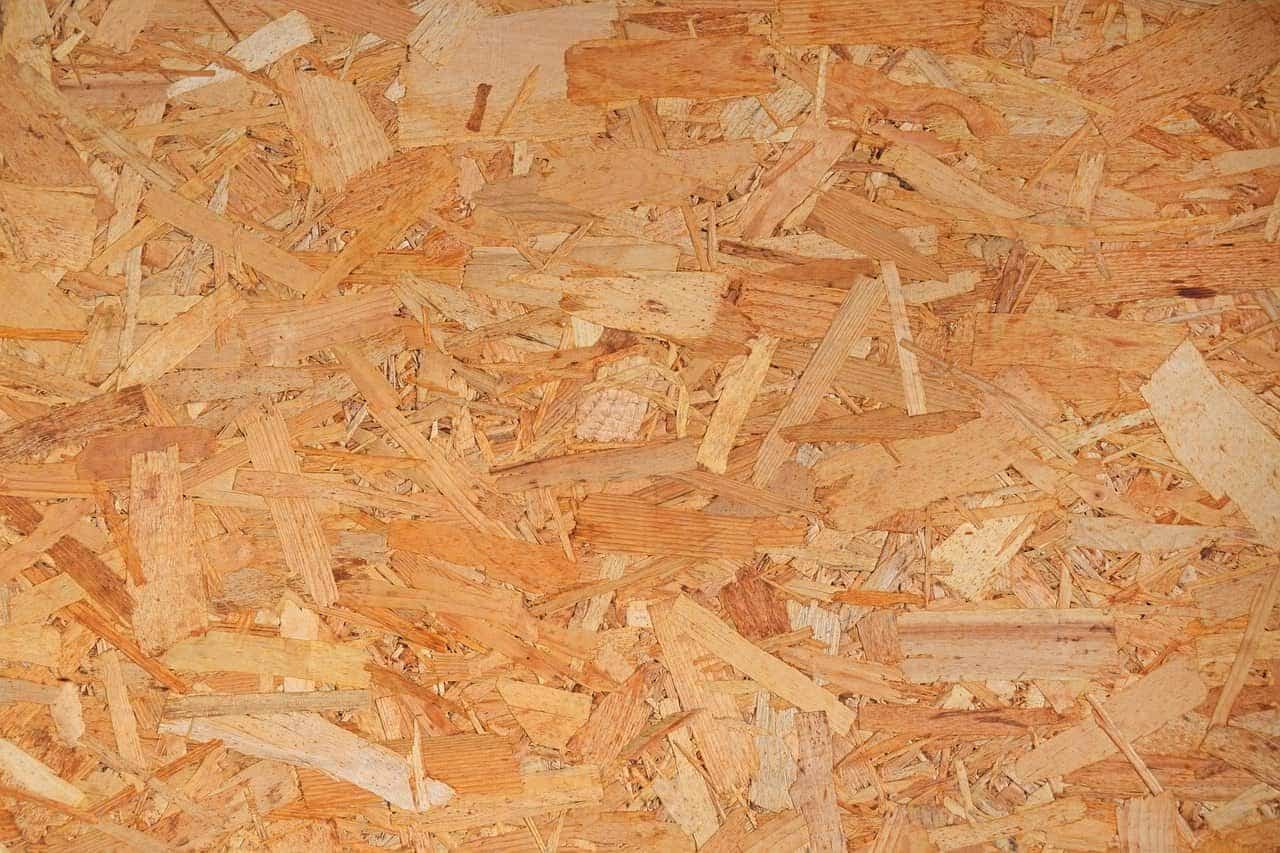
OSB is engineered wood, created by compressing and bonding small wood strands together with resins and adhesives. The manufacturing process involves shredding and aligning wood strands in layers, which are then oriented in specific directions to maximize strength and structural integrity.
Characteristics of OSB panels are:
- Cost-Effectiveness: OSB is known for its affordability, making it a popular choice for budget-conscious roofing projects.
- Moisture Resistance: The addition of resins and wax enhances OSB’s resistance to moisture, preventing it from warping or rotting easily.
- Ease of Installation: OSB is lightweight and easy to handle, making the installation process quicker and simpler.
- Durability: It offers adequate strength and structural integrity for most roofing applications.
- Environmental Impact: OSB is considered more eco-friendly than traditional plywood as it utilizes fast-growing trees and maximizes the use of wood.
Plywood Roofing Materials
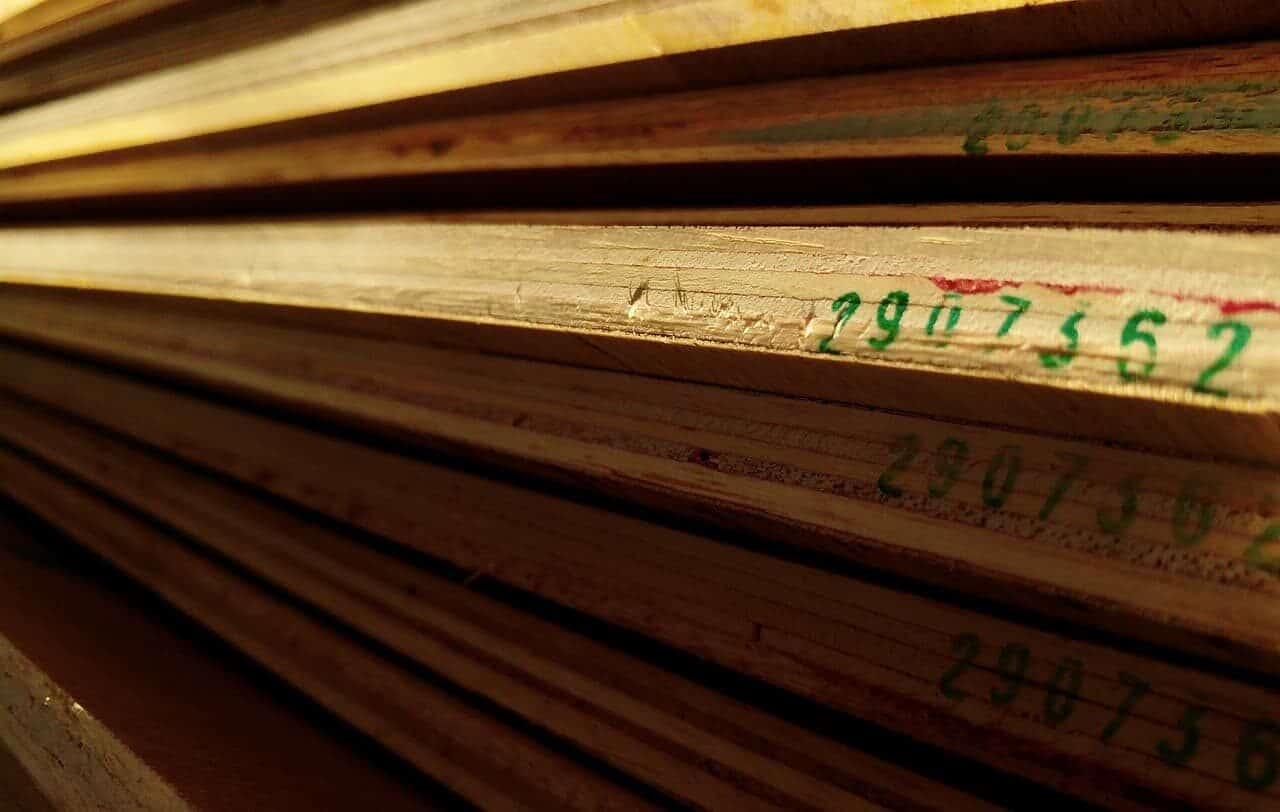
Roofing plywood has been a traditional roofing material for decades, renowned for its strength, versatility, and reliability. Plywood consists of thin wood veneers, known as plies, with each layer positioned perpendicular to the adjacent one. This cross-grain arrangement gives plywood its exceptional strength and stability.
Key features of plywood for roofing include:
- Structural Strength: Plywood is renowned for its superior strength and resistance to bending or sagging under heavy loads.
- Moisture Resistance: Exterior-grade plywood is designed to withstand moisture, making it less susceptible to rot and decay.
- Longevity: When properly installed and maintained, plywood roofs can have a long service life.
- Versatility: Plywood is available in various thicknesses and grades, making it suitable for a wide range of roofing applications.
Comparing Characteristics of OSB vs Plywood for Roof Sheathing
When it comes to choosing the perfect roof sheathing material, homeowners and contractors are often faced with a critical decision: OSB or plywood? By identifying areas of importance and evaluating the similarities and differences between OSB vs plywood, you can make an informed decision about the best material for your roof.
Engineered Wood
Both OSB and plywood are engineered wood products, manufactured by bonding wood strands or veneers together using adhesives and heat. This construction process enhances their strength and structural integrity.
Roof Sheathing
Both materials are commonly used as roof sheathing, providing a stable and solid base for the roofing materials to be installed on top.
Roof Support
OSB and plywood offer structural support to the roof, distributing the weight of the roofing materials evenly across the roof’s framing.
Versatility
Both materials are available in various thicknesses and grades, making them suitable for a wide range of roofing applications.
Composition
The primary difference of OSB vs plywood lies in their composition. OSB is made from small wood strands that are aligned and pressed together, while plywood is constructed from thin wood veneers stacked perpendicular to each other.
Moisture Resistance
Plywood generally has better moisture resistance compared to OSB. Exterior-grade plywood (CDX) is specifically designed to withstand exposure to the elements and resist moisture, making it a preferable choice for roofing in humid or wet climates.
Strength and Stability
Plywood is considered to be stronger and more stable due to its cross-grain construction, where the layers are oriented in opposite directions. This characteristic gives plywood better resistance to bending and sagging under heavy loads, making it suitable for larger or steep-slope roofs.
Cost
Comparing OSB vs plywood cost, OSB is the more budget-friendly choice for projects where roof replacement cost is important. Its affordability can be advantageous for smaller residential roof repair or replacement projects with budget constraints.
Environmental Impact
OSB is often considered more eco-friendly than plywood due to its manufacturing process that utilizes fast-growing trees and minimizes waste. Plywood production may involve more intensive harvesting practices and the use of slow-growing hardwood trees, which can have a greater impact on the environment.
Longevity
While both materials can have a long service life when properly installed and maintained, plywood’s superior moisture resistance and strength may give it a slight edge in terms of longevity.
Comparing OSB vs Plywood for Specific Roofing Applications
When it comes to roofing materials, the battle between OSB vs Plywood has been ongoing for quite some time. Both materials have their unique characteristics and strengths, making them suitable for various roofing applications.
OSB vs. Plywood for Low-Slope Roofs
Low-slope roofs are characterized by a slight pitch or incline, which demands roofing materials with excellent moisture resistance and durability.
While OSB can be used for low-slope roofs and is often chosen for its cost-effectiveness, it may not offer the same level of moisture resistance and strength as plywood. In low-slope roofing scenarios where water pooling and potential water infiltration are significant concerns, plywood is the preferred option to ensure the roof’s long-term durability and performance.
OSB vs. Plywood for Steep-Slope Roofs
Steep-slope roofs require roofing materials that can withstand the forces of gravity, wind, and potential impacts.
While OSB can still be used for steep-slope roofs and may be chosen as a more budget-friendly solution, plywood is generally the preferred option due to its structural advantages. The increased strength, stability, and resistance to shear and gravity make plywood an excellent choice for roofs with steeper pitches.
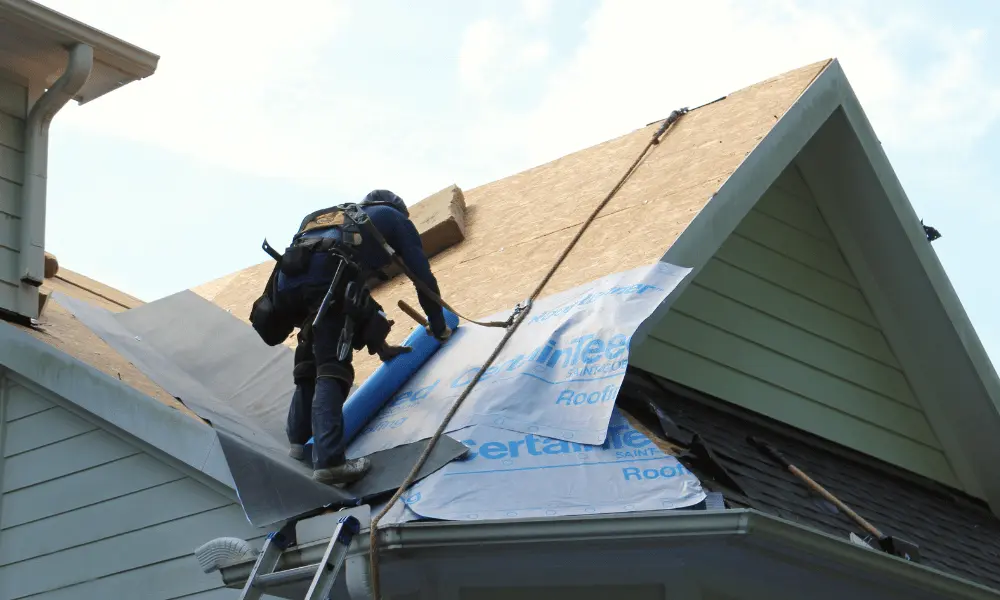
OSB vs. Plywood for Impact Resistance and Hail-Prone Areas
Certain regions are prone to hail and severe weather conditions, necessitating roofing materials with excellent impact resistance.
While OSB can still be used in hail-prone areas, it may have a higher risk of surface damage and potential compromise compared to plywood. Plywood’s superior impact resistance and structural stability make it the preferred choice for roofs in regions prone to hail and severe weather conditions.
OSB vs. Plywood for Humid and Moisture-Prone Climates
Humid and moisture-prone climates can wreak havoc on roofing materials, leading to decay, mold, and reduced structural integrity.
While OSB can still be used in humid climates, Plywood’s superior moisture resistance and reduced risk of delamination and rot make it the more reliable choice for roofing in such conditions.
Key Factors to Consider When Choosing Between OSB vs Plywood
When faced with the decision between OSB vs Plywood for your roofing project, several key factors come into play. Understanding and considering these factors will help you make an informed choice that aligns with your specific roofing needs and priorities.
Budget
Assessing your budgetary constraints is crucial, as OSB is generally more cost-effective than Plywood. If cost plays a significant role in your decision-making process, OSB might be the more attractive option.
Climate and Weather Conditions
Consider the climate of your region and the specific weather challenges your roof might face. Plywood’s better moisture resistance makes it a suitable choice for humid or wet climates, while OSB may perform well in drier conditions.
Roofing Requirements and Design Specifications
Evaluate the specific requirements of your roofing project, including load-bearing capabilities, installation methods, and any unique design specifications. Plywood’s structural strength might be preferred for larger or steep-slope roofs, while OSB’s ease of installation could be advantageous for smaller projects.
Longevity and Durability
Assess the expected lifespan of your roofing material and the level of durability required. Plywood, with its superior strength and moisture resistance, might offer a longer service life in certain scenarios.
Environmental Impact
If environmental considerations are essential to you, take into account that OSB is considered more eco-friendly due to its efficient use of fast-growing trees and reduced waste during manufacturing.
Roofing Maintenance
Consider the maintenance requirements of each material. Plywood’s better resistance to moisture might result in lower maintenance needs compared to OSB.
Impact Resistance
If your area is prone to hail or severe weather, evaluate the impact resistance of each material to determine which can better withstand potential damage.
Aesthetics and Personal Preference
Lastly, consider the aesthetic appeal of each material and your personal preference. Some individuals might prefer the look of one material over the other, which can also influence the decision-making process.
Contact Our Roofing Experts Today for Assistance with OSB vs Plywood Roofing Options
Are you feeling overwhelmed by the choice between OSB vs plywood for your roofing project? Don’t fret– our team of Raleigh roofing experts is here to help you make the right decision for your home.
Whether you need a budget-friendly solution, increased moisture resistance, or optimal strength for steep-slope roofs, our roofing contractors have you covered. We understand the unique challenges posed by different roofing applications, and our recommendations will ensure you get a roof that stands the test of time.
Get in touch with our team of roofing specialists today to schedule a comprehensive roof inspection by calling us at 919-906-3791 or filling out the contact form below to get started.
